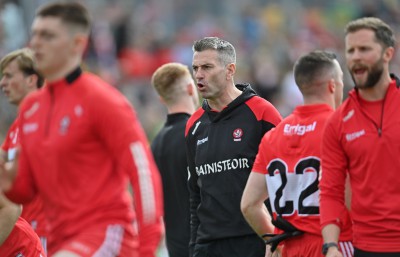I WAS listening to a podcast recently centring around a debate on coach education qualifications within the GAA.
I have all my awards, including foundation award, one and two, but I must be honest, I don’t think I have gained more knowledge, experience or skills through these awards. That knowledge, in my opinion, has come through observing and watching other coaches within our own sport but also in other sports.
In the next few weeks and months in our own game we will see a lot of clubs appoint a new coach or retain a previous one, and probably at this stage most clubs have already appointed someone for 2023.
In today’s game, particularly at inter-county level, there is a huge emphasis placed on who the coach of the team will be. At inter-county level, it seems to be more important how many names you have in your backroom team regardless of who the manager is.
Good coaching is more than just science, awards or letters after your name, anyone can look on the internet or in magazines or books and find the latest fad or craze to get a team fit, some people are also paying enormous amounts of money to do various courses to carry onto the training field with them but there is so much more to coaching. It’s a pure art form!
Does having a couple of qualifications behind your name after going to a course for a handful of weekends serve you better than actual on-pitch experience and opportunities to observe and learn off other coaches? As I always say, ultimately the greatest resource we have as coaches is each other.
The real job of a good coach in my opinion is to steer, motivate and allow the players in your care the best opportunity to reach their full potential.
Here are some important qualities a good coach should bring to your club to make a difference:
1) Have your own coaching philosophy
Develop a set of values, principles and beliefs that are unique to you, no two individual coaches will be the same. It is important not to mix a coaching philosophy with a preferred style of play. Your philosophy is what moulds you as a coach.
2) Knowledge of the game
Coaches may have played but not all good players necessarily make good coaches. Coaches should understand the rules, watch as much of the sport as possible and have a good understanding of the skills and strategies in the game that’s needed to progress.
3) High quality communicator, motivator and leader
Coaches should be able to communicate and give clear precise instruction at training and in games. Communication works both ways and they should also be effective listeners. Praising, encouraging and displaying enthusiasm vital are motivational tools. Display leadership qualities when most needed.
4) Willingness to learn and love for the game
No coach is an expert but there are some coaches who may have more ideas than others, seek out new ideas, drills, and games and attend coaching courses where you can liaise with other coaches and always look to grow and improve. The best coaches also love the game and have a passion for the sport.
5) Be yourself
The great John Wooden used to say, “Time spent comparing yourself to others is time spent wasted.” Don’t try to be someone you aren’t, everyone has their own unique personality and qualities they bring to teams. Believe and trust in yourself.
Receive quality journalism wherever you are, on any device. Keep up to date from the comfort of your own home with a digital subscription.
Any time | Any place | Anywhere












